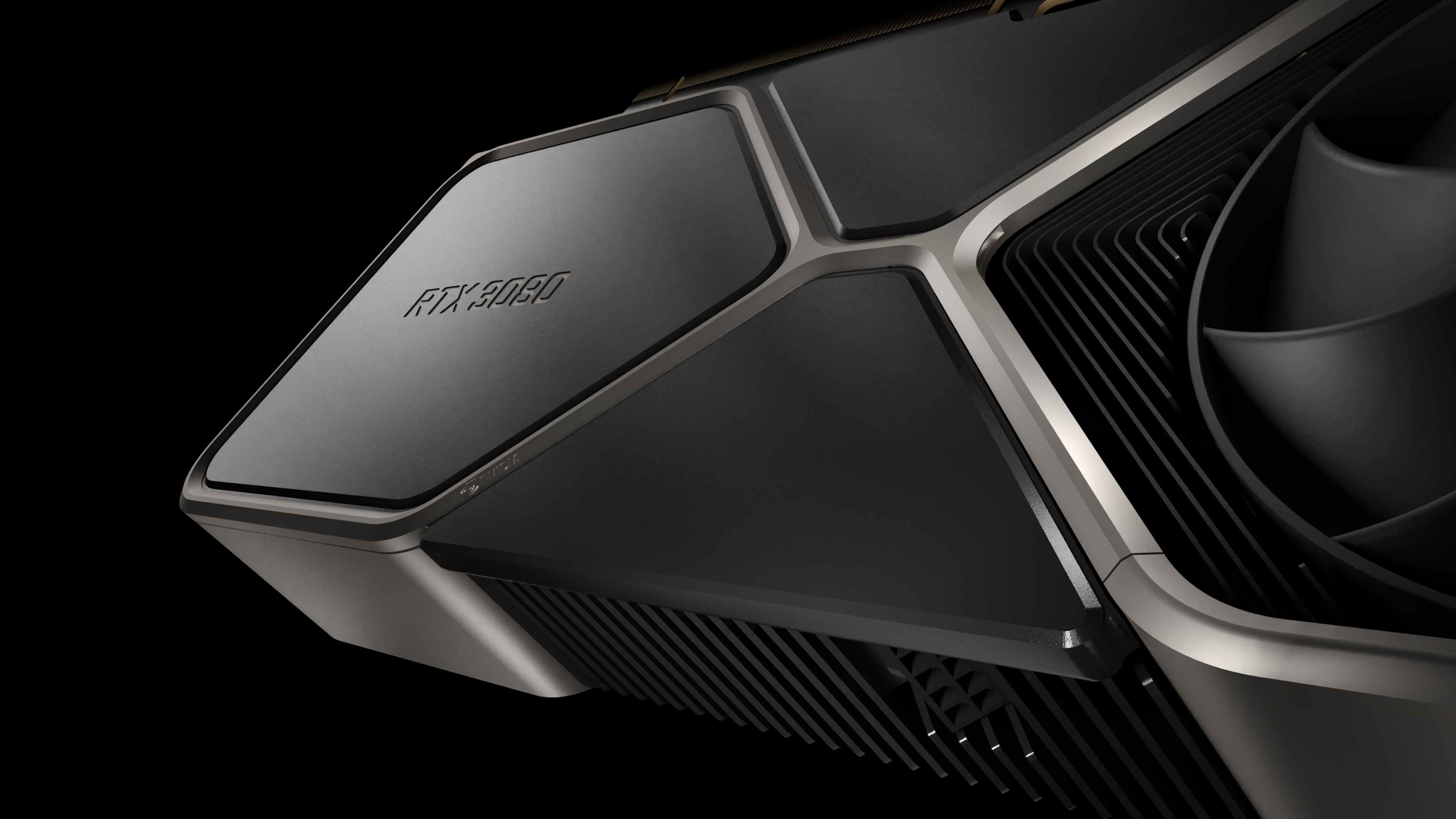If Nvidia GPU prices drop like they have in China, get ready for some bargains
Apparently all of Nvidia’s graphics cards are now below MSRP at retailers in China

Nvidia’s RTX 3000 GPU pricing is dropping faster than ever, going by a snapshot of retail prices in China, which is likely a good indication of what’ll be happening elsewhere in short order.
The prices of all current-gen graphics cards – AMD and Nvidia – are falling swiftly going by the report which was flagged up by Wccftech and comes from Baidu Tieba (an online community in China), so approach this with a healthy amount of caution, as with any such post.
What we see here is that Chinese retailers are cutting the top-end Nvidia GPUs with much deeper drops, and the RTX 3090 Ti, 3090 and 3080 Ti are all now well under their MSRPs (suggested retail prices) by 38%, 29% and 33% respectively.
The RTX 3080 (10GB version) is now 16% under its MSRP, and the RTX 3070 Ti and 3070 are 15% and 13% below their recommend price at these Chinese retailers. The price drops continue into the lower-tier cards, surprisingly, with the RTX 3060 down by 12% and the RTX 3050 has dropped 10% under MSRP, with the RTX 3060 Ti being more stubborn but still falling to 4% below.
AMD’s RX 6000 range also has a graphics card that’s now well below MSRP and it’s the RX 6900 XT which is now 37% under. Interestingly, the other big downward plunge in price tag for Team Red is at the other end of the scale, the lowly RX 6400, which is 31% below MSRP – a reflection of the shaky reception this dubiously pitched GPU has received more than anything.
Other big price drops for AMD over at Chinese retailers include the RX 6600 and 6600 XT at 28% and 26% down respectively, and the 6500 XT which is 21% under MSRP. The 6650 XT is pretty much the same as the latter at 20% under, as is the 6750 XT at 19% below its recommended pricing.
The graphics card that’s holding closest to MSRP in AMD’s line-up is the flagship RX 6950 XT which is just 6% under, but of course that GPU hasn’t been out for long (it was only released in May).
Sign up for breaking news, reviews, opinion, top tech deals, and more.
Analysis: Some striking similarities – and one glaring difference
Broadly speaking, what we see here matches what’s recently been witnessed in the US retail market with GPUs in many respects, with Nvidia’s top-end graphics cards seeing the biggest levels of price erosion, and on the AMD front, the RX 6800 and 6800 XT being more stubborn in terms of maintaining higher retail asking prices. In the US, those are the only AMD GPUs to remain above MSRP, and they’ve experienced a lesser a drop in China (13% and 15% below MSRP), making them the most resistant products in terms of the current price drops (save for the AMD flagship 6950 XT as mentioned).
So this data does match up with the US market in many ways, lending it more credibility, but what’s really interesting is the one striking difference with this fresh report on pricing: namely that Nvidia price tags are below MSRP across the board in China.
In the US, pricing for the RTX 3090 Ti and 3090, plus the 3080 Ti, has sunk below MSRP, but other Nvidia Ampere GPUs have refused to do so, and indeed they’ve stayed around 15% over their recommended pricing (and more like 30% with the RTX 3050).
So, to see that every Nvidia RTX 3000 model has fallen below MSRP in China is quite a telling indication that the same could well happen in the US soon enough. Particularly given that all we’re hearing recently is how retailers are going to be struggling with a large excess of stock for Ampere, and this could be a serious problem for Nvidia bringing in RTX 4000 graphics cards too early – as doing this will interfere with getting rid of those apparent warehouses full of RTX 3000 GPUs.
A whole range of unfortunate pressures have come to bear in creating this situation for Nvidia, including the crypto crash and miners selling off second-hand cards interfering with retail sales, and the general economic climate and cost of living crisis meaning folks are much less inclined to fork out for GPUs which are over MSRP – and quite rightly so.
Graphics card pricing should never have got this far out of hand in the first place, anyway – and that was of course an issue of supply not nearly being able to meet demand, a situation which now seems to be undergoing a complete reversal with Nvidia graphics cards.
Our recommendation remains that you should continue to play a waiting game if you are thinking about buying a current-gen GPU, and especially an Nvidia card (which are still by far the most popular models). If the price-cutting action in China is anything to go by – and we strongly suspect it is, given all the other buzz on the grapevine about excess RTX 3000 stock being a serious issue for Nvidia – then the real price drops for Ampere graphics cards are still yet to happen in the US, Europe and elsewhere.
There’s certainly little to lose by waiting, as pricing won’t be going up, that’s for sure, and stock levels seemingly won’t be anywhere near running short anytime soon either (for Nvidia, anyway).
Darren is a freelancer writing news and features for TechRadar (and occasionally T3) across a broad range of computing topics including CPUs, GPUs, various other hardware, VPNs, antivirus and more. He has written about tech for the best part of three decades, and writes books in his spare time (his debut novel - 'I Know What You Did Last Supper' - was published by Hachette UK in 2013).